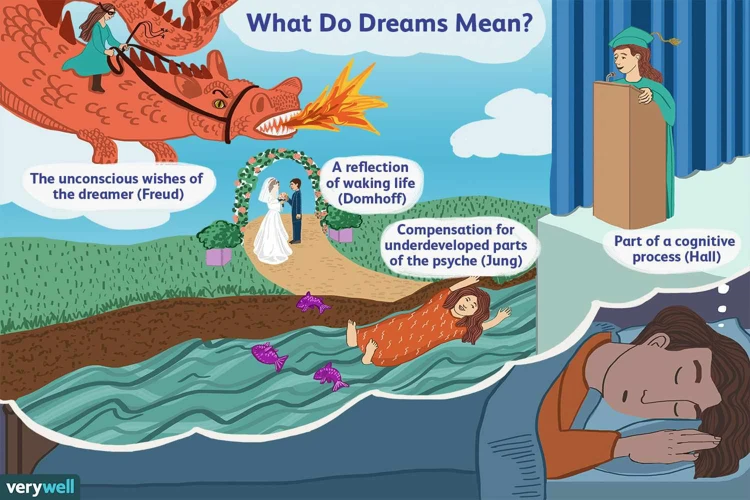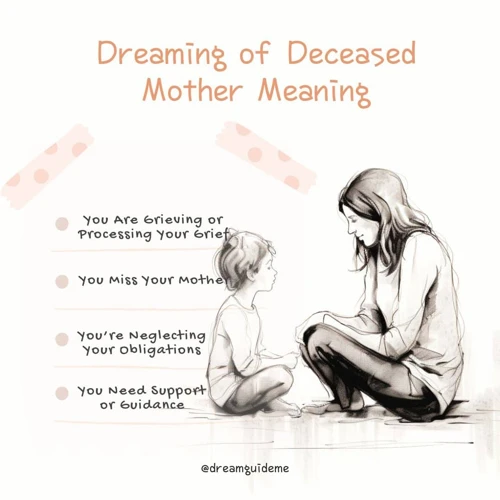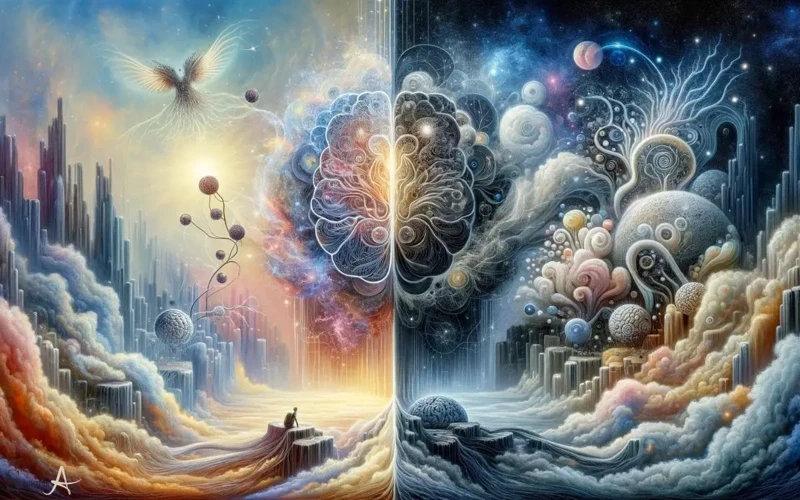Decoding the Mystery: Dream Meaning of Dead Relatives Unveiled
Dreams have long fascinated and perplexed humans, serving as mysterious portals to the subconscious mind. Among the myriad of dream experiences, those involving dead relatives hold a special significance. In this article, we will delve into the realm of dream interpretation and explore the hidden meanings behind these encounters with departed loved ones. By understanding the symbolism, psychological factors, and cultural influences at play, we hope to shed light on the enigmatic landscape of dreams and provide guidance for unraveling the messages from the other side. Whether you seek closure, guidance, or simply curiosity, this exploration of the dream world promises to be an enlightening adventure into the depths of the human psyche.
Understanding Dreams

Understanding Dreams
Delving into the realm of dreams requires unraveling the intricate tapestry of the subconscious mind. Dreams serve as reflections of our inner thoughts, emotions, and experiences, providing a glimpse into the depths of our psyche. Dreams as Reflections of the Subconscious Mind allow us to explore unresolved issues, desires, and fears that may be lurking beneath the surface. They can offer insight into our subconscious thoughts and feelings that we may not be consciously aware of. Additionally, dreams often make use of symbolism to convey their messages. Symbolism in Dreams helps to decode the hidden meanings, as objects, people, and scenarios in dreams often represent deeper psychological and emotional concepts. From deceased relatives to common objects, understanding the symbolism can unlock the secrets of the dream world. The significance of dreaming about dead relatives is a particularly intriguing aspect of dream interpretation. These dreams may hold profound meaning for the dreamer, perhaps providing closure, guidance, or an opportunity for healing. By deciphering the context, emotions, and symbolic elements of these dreams, we can engage in a journey of self-discovery and understanding.
1. Dreams as Reflections of the Subconscious Mind
1. Dreams as Reflections of the Subconscious Mind: Dreams serve as fascinating portals to our subconscious mind, offering a glimpse into our deepest thoughts, desires, and fears. They provide a unique opportunity to explore unresolved issues and gain insight into our innermost selves. When we dream, our subconscious mind takes center stage, creating scenarios and narratives that may be influenced by our waking life experiences. These dreams can offer a window into our emotions, beliefs, and thoughts that may not be readily available to us during our waking state. By analyzing our dreams, we can gain a better understanding of ourselves and potentially uncover hidden aspects of our psyche. Whether it’s a cryptic message or a vivid representation of our emotions, dreams hold a wealth of information waiting to be decoded and explored.
2. Symbolism in Dreams
Understanding the symbolism in dreams is key to deciphering their hidden meanings. Dreams often utilize symbols to convey messages from the subconscious mind. These symbols can take various forms, such as objects, animals, or people, each carrying their own significance. For example, a dream about a white snake may represent transformation and spiritual growth, as explored in the biblical meaning of a white snake in a dream. Similarly, the presence of a blue snake in a dream may symbolize healing and communication, as discussed in the biblical meaning of a blue snake in a dream. Understanding the symbolic elements in dreams can provide valuable insights into our subconscious thoughts, emotions, and desires, allowing us to unravel the mysteries of the dream world.
3. The Significance of Dreaming About Dead Relatives
Dreaming about dead relatives holds great significance in the realm of dreams. These dreams often evoke powerful emotions and stir a deep sense of connection with departed loved ones. The experience can be both comforting and perplexing, leaving the dreamer with a sense of wonder and curiosity. While the exact meaning behind such dreams may vary depending on individual circumstances, the significance of dreaming about dead relatives lies in its potential to provide closure, healing, and guidance to the dreamer. These dreams may serve as a way to reconnect with loved ones who have passed away, offering the opportunity to resolve unresolved emotions or seek forgiveness. Exploring the meaning of these dreams can lead to a deeper understanding of oneself and the complex emotions surrounding the loss of a loved one.
Interpreting Dreams About Dead Relatives

Interpreting Dreams About Dead Relatives
When it comes to deciphering the meaning behind dreams involving deceased loved ones, there are several key factors to consider. Analyzing the Context of the Dream is crucial, as the setting, characters, and overall narrative can provide valuable insights. Is the dream peaceful or filled with anxiety? Are there specific locations or objects that stand out? Additionally, Examining Your Emotional Reaction to the dream is important, as it can reveal underlying feelings or unresolved emotions related to the deceased relative. Identifying Symbolic Elements within the dream, such as familiar objects or recurring motifs, can also shed light on the hidden messages from the subconscious. It is worth noting that seeking guidance from professionals, such as dream analysts, psychologists, or therapists, can provide further assistance in interpreting these dreams. Exploring the biblical meaning of corn in a dream or other related symbolism may also offer valuable insights into the dream’s significance. By combining these approaches, one can embark on a personal journey of understanding and self-discovery through the realm of dreams.
1. Analyzing the Context of the Dream
To unravel the meaning behind a dream about a deceased relative, it is crucial to analyze the context in which the dream unfolds. The context refers to the setting, events, and interactions that take place within the dream. Pay attention to any specific details, locations, or activities that stand out. Consider the emotions you experienced during the dream and upon waking up. Was the atmosphere calm and peaceful or tense and chaotic? Understanding the context can provide valuable clues to the underlying message of the dream. Additionally, take note of any recurring themes or patterns that may be present in multiple dreams about deceased relatives. These patterns can offer further insight into the significance of the dream and its connection to your personal experiences and emotions.
2. Examining Your Emotional Reaction
When interpreting dreams about dead relatives, it is crucial to examine your emotional reaction upon waking. Your feelings during and after the dream can provide valuable insights into its meaning. Ask yourself questions like: Did you feel comforted, distressed, or indifferent? Did the dream evoke strong emotions such as sadness, joy, fear, or anger? Examining Your Emotional Reaction can offer clues about unresolved emotions or unresolved issues with the deceased relative. It can indicate the need for healing, closure, or forgiveness. By paying attention to your emotions, you can gain a deeper understanding of the underlying messages that your dream is trying to convey. Remember to keep a dream journal to record your emotions and thoughts upon waking to help facilitate the interpretation process.
3. Identifying Symbolic Elements
Identifying Symbolic Elements
In the process of interpreting dreams about dead relatives, it is crucial to identify and analyze the symbolic elements present in the dream. These symbols can provide valuable insights into the underlying meaning of the dream. Pay close attention to objects, settings, people, and actions within the dream, as they may represent deeper psychological or emotional concepts. For example, a watch could symbolize the passage of time or a missed opportunity, while a garden may symbolize growth and renewal. By decoding these symbolic elements, we can unravel the messages and guidance that our dreams are trying to convey.
4. Seeking Guidance from Professionals
Seeking Guidance from Professionals
When it comes to interpreting dreams about dead relatives, it can be beneficial to seek assistance from professionals in the field of dream analysis and psychology. Seeking Guidance from Professionals such as psychotherapists, dream therapists, or spiritual counselors can provide valuable insights and expertise. These professionals have a deep understanding of the complexities of the human mind and the symbolism of dreams. They can offer guidance in exploring the emotional, psychological, and spiritual aspects of these dreams, helping to uncover hidden meanings and facilitating the process of healing and self-discovery. Through their expertise, dream professionals can provide support and guidance in navigating the realm of dreams and gaining a deeper understanding of the messages from our deceased loved ones.
Common Dream Scenarios with Dead Relatives

Common Dream Scenarios with Dead Relatives
Dreams involving deceased loved ones can take various forms and carry unique messages. In Reunion in a Peaceful Setting, dreamers may find themselves in idyllic surroundings, basking in the warmth of their departed relatives’ presence. These dreams often evoke a sense of comfort, reassurance, and a longing for connection. Receiving Messages or Warnings is another common theme, where deceased relatives communicate important information or offer guidance from beyond the grave. These messages may come in the form of symbols, words, or even telepathic exchanges. Seeking Closure or Forgiveness dreams revolve around unresolved conflicts or unspoken emotions. They provide an opportunity for emotional healing and closure by allowing the dreamer to reconcile with their deceased loved ones. Guidance from Ancestors dreams offer wisdom and guidance from previous generations. These dreams often symbolize the continuity of family ties and the power of ancestral knowledge. Lastly, dreams involving deceased relatives can also evoke Fear and Anxiety as they confront the dreamer with their own mortality and the complex emotions associated with loss. Understanding these common dream scenarios helps unravel the messages and emotions surrounding the dreamer’s encounters with their deceased relatives.
1. Reunion in a Peaceful Setting
Dreams about a reunion with deceased relatives in a peaceful setting hold a special significance. Such dreams often evoke a sense of calmness and serenity, allowing for a heartfelt connection with loved ones who have passed away. The peaceful setting may symbolize a state of tranquility and harmony, representing a sense of closure or resolution in the relationship with the deceased relative. This dream scenario can bring comfort and a feeling of reassurance, reminding the dreamer that their loved ones are at peace and watching over them from the other side. It may also serve as an opportunity for the dreamer to find solace in the memories and shared moments with their departed relatives, fostering a sense of healing and emotional well-being.
2. Receiving Messages or Warnings
Receiving messages or warnings in dreams involving dead relatives can be a captivating and powerful experience. These dreams often serve as a conduit for communication from beyond, offering guidance and insights that can be transformative. Mysterious symbols may appear in these dreams, conveying messages that can be highly personal and significant to the dreamer. Whether it’s a verbal message, a written note, or a symbolic representation, these dreams can leave a lasting impact. The deceased relative may be offering advice, cautioning against certain actions, or providing comfort and reassurance. It is important to pay attention to the emotions and intuitive feelings associated with these dreams, as they can provide valuable clues about the messages being communicated. Seeking interpretation from professionals or discussing the dream with someone knowledgeable in dream analysis can help shed light on the profound messages or warnings received during these encounters with deceased loved ones.
3. Seeking Closure or Forgiveness
In dreams involving dead relatives, one common theme that may emerge is seeking closure or forgiveness. These dreams can provide an opportunity for individuals to address lingering emotional wounds, unresolved conflicts, or unfinished business with deceased loved ones. The dreamer may experience a sense of longing, regret, or the need to express forgiveness or seek forgiveness from the departed relative. Seeking Closure or Forgiveness dreams can offer a chance to reconcile and find peace within oneself. It is important to pay attention to the emotions and messages conveyed in these dreams, as they may provide a path towards healing and resolution. Whether it is a heartfelt apology or an act of forgiveness, these dreams can serve as a catalyst for emotional closure and personal growth.
4. Guidance from Ancestors
Dreams about dead relatives can sometimes serve as a channel for receiving guidance from our ancestors. Guidance from Ancestors dreams can manifest as a direct exchange of wisdom and advice or as a symbol that represents the presence and support of our ancestors. These dreams may offer insight into challenges we are currently facing or provide guidance on important life decisions. It is important to pay attention to the messages and symbols presented in these dreams, as they may carry significant meaning and offer a sense of connection with our ancestral lineage. By acknowledging and interpreting these dreams, we can tap into the collective wisdom of our ancestors, gaining clarity and understanding in our waking lives.
5. Fear and Anxiety
Dreams about dead relatives can also invoke feelings of fear and anxiety. The presence of deceased loved ones in a dream may bring up unresolved emotions or past traumas, leading to feelings of unease. These dreams can symbolize unresolved issues or fears surrounding death, loss, or the unknown. It is important to explore these emotions and seek support in order to process and understand the underlying causes of fear and anxiety in these dreams. By confronting and addressing these feelings, the dreamer can work towards finding peace and healing in their waking life.
Psychological and Spiritual Perspectives

Psychological and Spiritual Perspectives
When it comes to interpreting dreams about dead relatives, both psychological and spiritual perspectives offer valuable insights. From a Psychological Interpretations standpoint, these dreams can be seen as a manifestation of unresolved emotions, grief, or the need for closure. They may reflect our subconscious desire to confront and process our feelings towards our deceased loved ones. On the other hand, Spiritual and Afterlife Beliefs play a significant role in how we perceive these dreams. For many, dreaming of deceased relatives is viewed as a spiritual connection with the other side, an opportunity for their wisdom and guidance to reach us in the realm of dreams. These interpretations can provide comfort, reassurance, and a sense of ongoing connection with those who have passed away. Both psychological and spiritual perspectives contribute to our understanding of these dreams, allowing us to explore the depths of our psyche and embrace the healing power they may hold.
1. Psychological Interpretations
Psychological interpretations of dreams involving dead relatives delve into the inner workings of the mind and its subconscious thoughts and emotions. Dreams with deceased loved ones can be seen as a manifestation of unresolved grief, longing, or unfinished business. These dreams may provide a cathartic release or a way to process emotions related to loss. Psychological interpretations explore the ways in which the mind uses dreams as a tool for self-reflection and healing, shedding light on the complexities of the human psyche and the intricate connections between dreams and our emotional state.
2. Spiritual and Afterlife Beliefs
Spiritual and Afterlife Beliefs
When it comes to dreams about dead relatives, spiritual and afterlife beliefs play a significant role in interpreting their meaning. Different cultures and belief systems have varying perspectives on what happens after death and the existence of an afterlife. For those who hold spiritual beliefs, these dreams may be seen as a form of communication or visitation from the departed loved ones. They may be viewed as messages, guidance, or even an opportunity for reconciliation and forgiveness. Spiritual interpretations can offer solace, comfort, and a sense of connection to something beyond the physical realm. It is important to consider one’s own beliefs and cultural background when deciphering the deeper significance of these dream encounters with deceased relatives.
3. The Role of Grief and Healing
Grief and healing play a significant role in the interpretation of dreams about dead relatives. When we lose someone close to us, the grieving process can be complex and lengthy. Dreams provide a unique space for processing grief and facilitating healing. The Role of Grief and Healing in dreams involving deceased loved ones can offer a sense of comfort, closure, and even closure that may not be possible in waking life. These dreams can create a space for emotional release, allowing us to express our emotions and come to terms with our loss. They may serve as a catalyst for healing and moving forward in the grieving process. By acknowledging and understanding the role of grief and healing in these dreams, we can navigate the path towards emotional well-being and find solace in the realm of dreams.
Factors Influencing Dream Interpretation
Factors Influencing Dream Interpretation
Dreams can be influenced by numerous factors that shape their meaning and interpretation. Cultural and Religious Background plays a significant role in shaping our understanding of dreams. Different cultures and religions may ascribe varying meanings to symbols and experiences within dreams, reflecting their unique beliefs and traditions. Personal experiences and memories also contribute to the interpretation of dreams. Past events, traumas, and significant relationships can manifest in our dreams, reflecting our subconscious processing of these experiences. Furthermore, emotional state and sleep patterns impact the content and vividness of dreams. Stress, anxiety, and sleep disturbances can influence the intensity and clarity of our dream experiences. By considering these factors, we gain valuable insights into the complex landscape of dream interpretation, appreciating the multifaceted nature of our dream world.
1. Cultural and Religious Background
In the realm of dream interpretation, cultural and religious background plays a crucial role in shaping the understanding and significance of dreams about dead relatives. Cultural and Religious Background influences our beliefs and perspectives on death, the afterlife, and the spiritual realm. Different cultures and religions have varying interpretations and rituals surrounding death, which can greatly impact how individuals perceive and interpret dreams about deceased loved ones. An individual’s cultural and religious upbringing can provide a framework for understanding the messages, symbols, and emotions present in these dreams. It is important to consider the cultural and religious context when analyzing and interpreting dreams involving dead relatives, as it provides valuable insight into the dreamer’s beliefs and worldview.
2. Personal Experiences and Memories
Our personal experiences and memories play a crucial role in shaping our dreams. influence the content and symbolism of our dreams, as our subconscious mind draws upon these memories to create dream narratives. Thoughts, events, and emotions from the past can resurface in our dreams, sometimes manifesting as interactions with deceased relatives. These dream scenarios can provide an opportunity for reflection, healing, or even reexamination of unresolved emotions tied to those memories. Exploring our personal experiences and memories can help us gain further insight into the messages our dreams are conveying and aid in the interpretation process.
3. Emotional State and Sleep Patterns
Our emotional state and sleep patterns play a significant role in shaping our dreams. directly influence the content and intensity of our dream experiences. For example, heightened stress or anxiety levels during waking hours can manifest as vivid and unsettling dreams during sleep. Similarly, if we have a disrupted sleep pattern or suffer from insomnia, it can affect the overall structure and coherence of our dreams. Our emotional state can color the themes and interactions within our dreams, with feelings of sadness, joy, fear, or excitement often reflected in the dream narrative. Recognizing the relationship between our emotions and sleep patterns can offer valuable insights into the interpretation of dreams, particularly when exploring dreams about deceased relatives.
Conclusion
Conclusion
In conclusion, decoding the meaning of dreams involving dead relatives is a complex endeavor that requires careful examination of context, emotions, and symbolism. These dreams serve as windows into the subconscious mind, offering insight into unresolved issues, guidance, and opportunities for healing. By analyzing the cultural, psychological, and spiritual perspectives, we can gain a deeper understanding of these dream experiences. Factors such as cultural and religious background, personal experiences, and emotional state also influence dream interpretation. Whether seeking closure, messages from the other side, or simply a better understanding of the self, exploring the dream world can be a transformative journey. Consulting with professionals in the field can provide additional guidance and insights. Ultimately, unraveling the mysteries of dreams about dead relatives opens up a world of possibilities for self-reflection, growth, and connection with the spiritual realm.
Frequently Asked Questions
1. Can dreams about dead relatives be messages from the afterlife?
While some individuals believe that dreams about dead relatives can be messages from the afterlife, it is important to approach this interpretation with an open mind. The meaning of dreams is highly subjective and can vary based on personal beliefs and experiences.
2. Why do dreams about dead relatives feel so vivid and realistic?
One possible explanation for the vividness and realism of dreams about dead relatives is the emotional significance attached to these individuals. The subconscious mind may draw upon vivid memories and emotions, creating a dream that feels exceptionally lifelike.
3. Are dreams about dead relatives always meaningful?
Not all dreams about dead relatives hold deep or significant meanings. Dreams can also stem from everyday thoughts, experiences, and random associations. It’s important to consider the broader context and emotional content of the dream to determine its potential significance.
4. Can dreams about dead relatives provide closure or healing?
Yes, dreams about dead relatives have the potential to offer closure or contribute to the healing process. These dreams can provide an opportunity to revisit unresolved emotions or seek forgiveness, helping individuals find emotional resolution and peace.
5. Are there cultural interpretations of dreams about dead relatives?
Absolutely. Cultural interpretations of dreams about dead relatives can vary significantly. Different cultural and religious beliefs may influence the way these dreams are perceived and understood. It’s essential to consider one’s cultural background when interpreting such dreams.
6. Why do dreams about dead relatives sometimes evoke fear or anxiety?
Fear and anxiety in dreams about dead relatives can arise from unresolved emotions, guilt, or past conflicts. These dreams may serve as an opportunity to face and process these feelings, leading to healing and closure.
7. Are there any scientific explanations for dreams about dead relatives?
From a scientific perspective, dreams about dead relatives can be seen as a reflection of the dreamer’s memories, emotions, and experiences. These dreams may provide a cathartic outlet for emotional processing, allowing the mind to make sense of complex emotions and grief.
8. How can dream professionals assist in interpreting dreams about dead relatives?
Dream professionals, such as psychologists or therapists specializing in dream analysis, can provide valuable insights and guidance in interpreting dreams about dead relatives. They can help explore the symbolic elements, emotional implications, and deeper meanings of these dreams within the context of the individual’s life.
9. Can dreams about dead relatives be influenced by personal grief or trauma?
Yes, personal experiences of grief or trauma can influence the content and themes of dreams, including dreams about dead relatives. These dreams may provide an avenue for processing inner emotions and working towards healing.
10. How can keeping a dream journal assist in understanding dreams about dead relatives?
Keeping a dream journal allows individuals to record and reflect on their dreams, including those involving dead relatives. By documenting the details, emotions, and recurring symbols, patterns or insights may emerge over time, enabling a deeper understanding of the personal significance behind these dreams.







